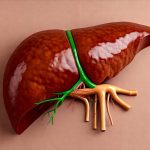Alcohol consumption is deeply ingrained in many cultures worldwide, often associated with social gatherings, celebrations, and relaxation. However, beyond the immediate effects of intoxication, alcohol exerts a significant influence on various bodily systems, including the digestive tract. While commonly understood to impact the liver, the stomach – the first point of contact for ingested substances – is particularly vulnerable to the corrosive and disruptive effects of alcoholic beverages. Understanding how alcohol interacts with the stomach lining is crucial for appreciating its potential health consequences.
The stomach’s primary function involves breaking down food through mechanical churning and chemical digestion using strong acids and enzymes. This environment, while essential for nutrient absorption, also presents a delicate balance that can be easily upset by external factors. Alcohol disrupts this balance in multiple ways, leading to both acute and chronic effects on the gastric mucosa – the protective lining of the stomach. The degree of impact is influenced by numerous variables including the type and quantity of alcohol consumed, individual susceptibility, and pre-existing health conditions.
Understanding the Stomach’s Protective Mechanisms
The stomach isn’t defenseless against its own harsh environment. Several mechanisms work in tandem to protect the gastric mucosa. These include a mucus layer acting as a physical barrier, rapid cell turnover replacing damaged cells, tight junctions between epithelial cells preventing acid penetration, and bicarbonate secretion neutralizing stomach acid. Alcohol interferes with each of these protective layers, increasing vulnerability to damage. Regular excessive consumption can overwhelm these defenses leading to inflammation and potentially more serious conditions over time.
Acute Effects of Alcohol on the Stomach Lining
Alcohol’s immediate effects on the stomach are often felt as discomfort or irritation. This isn’t just a matter of ‘burning’ – it’s about disrupting the delicate balance within the digestive system. The higher the alcohol concentration and quantity, the more pronounced these acute effects become. Individuals may experience nausea, vomiting, abdominal pain, and heartburn shortly after consuming alcoholic beverages. These symptoms are often temporary but serve as warning signs of gastric irritation.
Alcohol’s Impact on Mucus Production
One of the first ways alcohol affects the stomach is by reducing mucus production. The protective mucus layer acts like a shield against acid, and when its production decreases due to alcohol exposure, the stomach lining becomes more exposed to corrosive digestive juices. This diminished barrier increases susceptibility to damage from both alcohol itself and the stomach’s own acidic environment. Chronic reduction in mucus production can contribute to long-term inflammation and increased risk of ulcer development.
Disruption of Gastric Motility and Acid Secretion
Alcohol significantly alters gastric motility – the movement of food through the digestive tract. It initially stimulates acid secretion, leading to increased acidity within the stomach. Paradoxically, it then delays gastric emptying, meaning food remains in the stomach longer, prolonging exposure to both alcohol and acidic conditions. This combination accelerates damage to the lining. Furthermore, alcohol can disrupt the coordinated contractions needed for efficient digestion, causing bloating, discomfort, and potentially even regurgitation.
Increased Permeability of the Gastric Mucosa
Alcohol increases the permeability of the gastric mucosa. This means it weakens the tight junctions between cells in the stomach lining, making it easier for harmful substances – including alcohol itself and hydrogen ions (acid) – to penetrate deeper into the tissue layers. This increased permeability not only causes direct damage but also triggers an inflammatory response as the body attempts to repair the compromised barrier. Over time this can lead to chronic inflammation and potentially contribute to more serious conditions like gastritis or peptic ulcers.
Alcohol’s effects on the stomach are complex and multifaceted, extending beyond immediate discomfort. While moderate consumption may have limited impact for some individuals, regular heavy drinking places a significant strain on the gastric mucosa and its protective mechanisms. Understanding these interactions is vital for making informed choices about alcohol consumption and promoting digestive health. It is important to consult with healthcare professionals regarding concerns related to alcohol consumption and its effects on your individual health status.


















